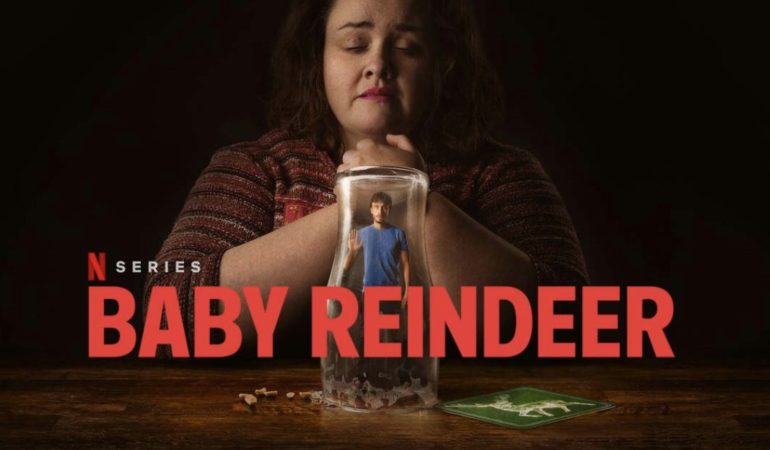Psychologist Explores ‘Baby Reindeer’: Unveiling the Layers of an Unconventional Stalker Story.
“Baby Reindeer” is igniting a complex discussion on mental health.

The popular Netflix series narrates the story of Donny Dunn (played by Richard Gadd), a comedian wrestling with his career, and his stalker, Martha (portrayed by Jessica Gunning). However, this series diverges from typical stalker narratives.
Gadd, who crafted the story from his own real-life experiences, shared with Netflix’s Tudum his intention to diverge from traditional portrayals of stalking in pop culture.
“Stalking in media is often glamorized. It’s depicted with a certain allure, featuring characters lurking in shadows or attractive figures who slowly unravel,” Gadd notes. “However, stalking is truly a mental health issue. I aimed to depict the multifaceted nature of stalking with a realism that’s rarely seen on TV. It’s about flipping the stalker trope on its head and challenging the norm.”
Across seven episodes, the series delivers an intense psychological exploration, delving into Martha’s unhealthy fixation on Donny and how his actions inadvertently fuel her obsession.
“Among the most authentic and precise representations of trauma on TV,” San Francisco therapist Avigail Lev, Psy.D., commends the show to TODAY.com, praising its nuanced and accurate depiction.
Below, Dr. Lev provides an analysis of the mental struggles faced by both characters in the series.
What Diagnosis Would a Therapist Give Martha?

After viewing “Baby Reindeer,” Lev suggests that the character Martha could be diagnosed with erotomania and borderline personality disorder.
Lev defines erotomania as “a form of delusional disorder in which the individual is convinced that another person, typically of higher status or a public figure, is in love with them.”
This belief persists even in the face of contradictory evidence. For example, despite Donny repeatedly telling Martha that he is only her friend at the start of the series, she continues to believe he has romantic feelings for her.

“Erotomania often presents through various behaviors such as obsessive actions, stalking, and sending numerous letters or messages to the individual they believe loves them,” explains Lev.
She notes that erotomania is more common in women than men and tends to occur in individuals who are socially isolated or have few personal connections.
Lev also identifies symptoms of borderline personality disorder in Martha.
“Her obsession with Donny isn’t just positive; she also demonstrates splitting behavior—idealizing him at times and devaluing him at others,” she describes. “This polarized, all-or-nothing thought pattern enables her to switch from extreme adoration to intense hostility quickly, which is characteristic of borderline personality disorder.”
Martha’s struggles with regulating her emotions and impulses are indicative of borderline personality disorder.
“Her admission of her actions at the show’s conclusion shows she isn’t suffering from a psychotic disorder like schizophrenia, as she maintains some awareness of reality,” Lev points out. “It’s more plausible that her condition is a personality disorder or a delusional disorder, marked by erroneous beliefs without the hallucinations or total disconnection from reality seen in more severe disorders. Martha’s actions are propelled by delusions, or mistaken beliefs, coupled with her inability to manage her emotions effectively.”
How Would a Therapist Assess Donny’s Mental Health?

Lev points out that Donny’s diagnosis is more complex than Martha’s.
Throughout the series, Donny grapples with his confidence and sexual identity after being raped by a previous mentor.
“Donny’s actions, which may appear compliant, are actually reactions to his trauma. The show portrays a trauma survivor very realistically. It’s common for those who have suffered abuse, rape, or exploitation to reenact their trauma and put themselves in dangerous situations as a means to reclaim some control,” Lev clarifies.

When Martha appears, Donny is in a very fragile state, “easily swayed” and “unable to differentiate between safe and dangerous individuals.”
Lev suspects that Donny suffers from post-traumatic stress disorder (PTSD) due to “his persistent reactions to traumatic events in his life.”
She also mentions Stockholm syndrome in reference to Donny, describing it as a “psychological response where hostages or abuse victims form an attachment to their captors or abusers.”
Individuals with this condition often feel sympathy or affection towards their perpetrator as a coping mechanism. Throughout the show, there are moments where Donny appears to be fond of or amused by Martha, and he definitely shows sympathy for her.
Donny might also be experiencing trauma bonding with Martha, which happens when a victim feels “increasingly worthless and ashamed due to the abuser’s actions” and “grows reliant on their abuser to mitigate the pain they inflict.”
“This cycle is difficult to break and is vividly depicted in the show, a common occurrence among victims of narcissistic abuse,” Lev observes. “When a victim is trauma bonded to their abuser, they rely on them to ease the pain caused by the abuser. It’s a profound psychological dependency where the more the victim is mistreated, the more they depend on their abuser, and this is the cycle of trauma bonding.”
What should you do if you meet someone like Martha?

Most of us aren’t prepared to handle the mental complexities associated with these psychological conditions. Nonetheless, Lev offers some advice on how to deal with a stalker.
- If possible, completely ignore the abuser.
- Collect evidence: Take video and audio recordings, and keep a written record.
- Communicate in writing to the stalker that their behavior is unacceptable and specify the consequences, such as notifying the authorities and seeking a restraining order.
The last step is crucial, according to Lev.
“After this, it’s vital to completely withdraw, using strategies like the ‘gray rock’ method, which entails becoming as dull and non-reactive as possible to reduce interactions,” Lev explains.



